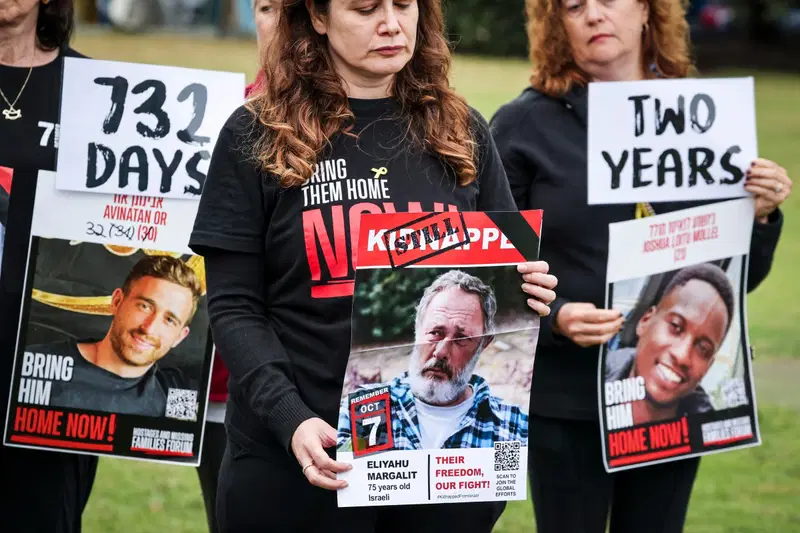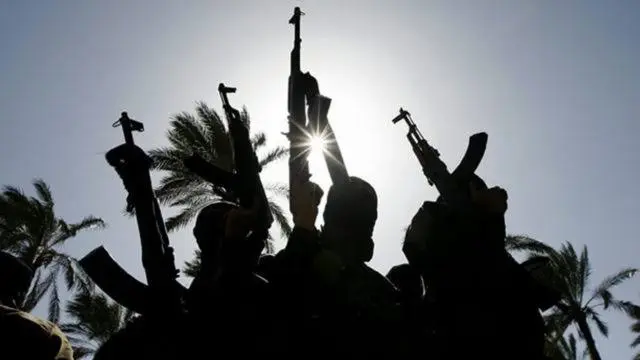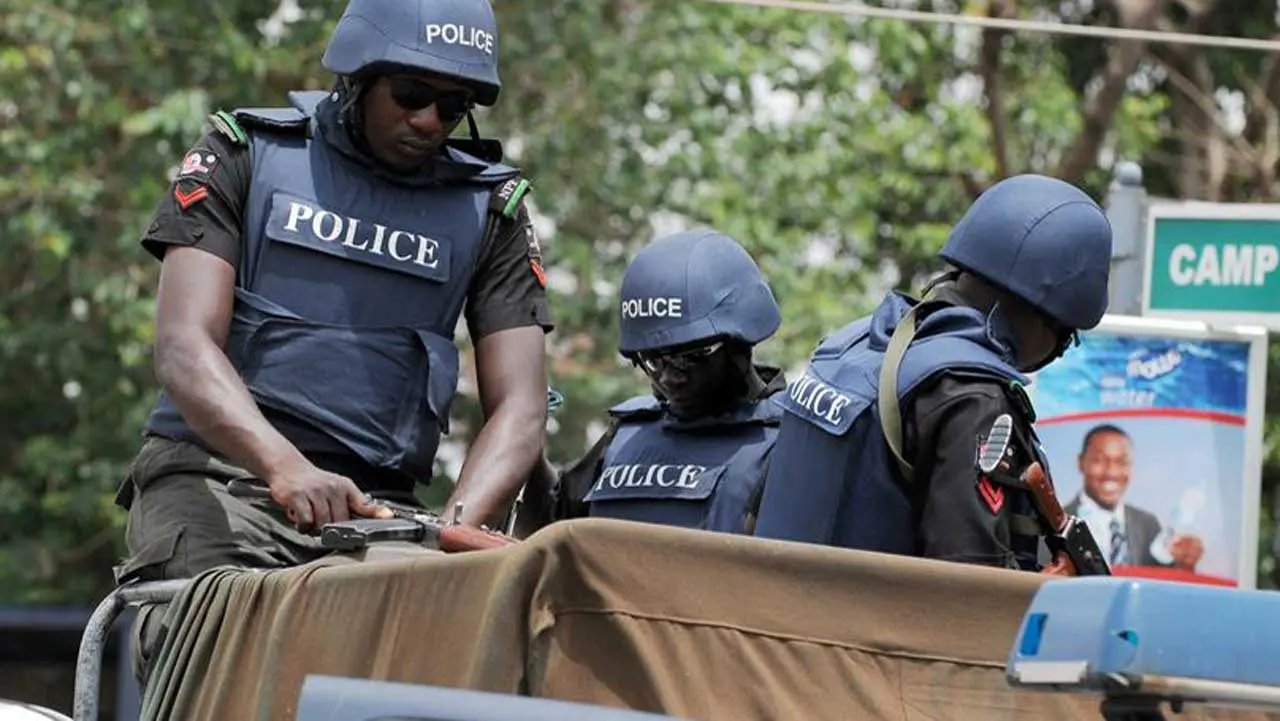Israel on Tuesday marked the second anniversary of the October 7, 2023 attacks, even as indirect peace talks between Israeli and Hamas negotiators continued under a US-backed ceasefire proposal aimed at ending the two-year war in Gaza.
Two years ago, during the Jewish festival of Sukkot, Hamas-led militants launched a surprise assault on Israel, in what became the deadliest day in the country’s history. Armed fighters broke through the Gaza-Israel border, attacking southern Israeli communities and a desert music festival with gunfire, rockets, and grenades.
According to Israeli figures compiled by AFP, 1,219 people were killed, mostly civilians. Militants also abducted 251 hostages into Gaza — 47 of whom remain captive, including 25 confirmed dead by the Israeli military.
Across Israel, memorials were held on Tuesday to remember the victims.
At the Nova music festival site, where more than 370 people were killed and dozens taken hostage, families and friends lit candles and observed a minute’s silence.
“It was a very difficult and enormous incident that happened here,” said Elad Gancz, a teacher who lost friends in the attack. “But we want to live — and despite everything, continue our lives, remembering those who were here and are no longer with us.”
Another remembrance ceremony was planned for Tel Aviv’s Hostages Square, where weekly rallies continue to demand the release of captives still held in Gaza. A state-organised commemoration will also take place on October 16.
Meanwhile, Israel’s military campaign in Gaza — involving air, land, and sea operations — continues to devastate the territory. The Hamas-run health ministry reports that at least 67,160 Palestinians have been killed, a figure the United Nations says is credible. More than half of the victims are women and children.
Entire neighbourhoods have been wiped out, and hundreds of thousands of displaced Gazans are now living in overcrowded camps with limited access to food, water, or sanitation.
“We’ve lost everything — our homes, families, neighbours,” said Hanan Mohammed, 36, displaced from Jabalia. “I just want a ceasefire. There’s nothing left but destruction.”
A survey by the Institute for National Security Studies shows that 72% of Israelis are dissatisfied with their government’s handling of the war.
Over the course of the conflict, Israel has expanded its military reach across the region — striking targets in Iran and other capitals, killing several senior Hamas commanders and Hezbollah leader Hassan Nasrallah.
Both Israel and Hamas are now under mounting international pressure to end the war. A recent UN investigation accused Israel of genocide, while rights groups have accused Hamas of war crimes for the October 7 attacks. Both parties have rejected the allegations.
Last week, US President Donald Trump unveiled a 20-point peace plan, which includes an immediate ceasefire once Hamas releases all hostages, the group’s disarmament, and a gradual Israeli withdrawal from Gaza.
Indirect talks began Monday in Sharm El-Sheikh, Egypt, with mediators moving between delegations. Egyptian state-linked media, Al-Qahera News, reported that discussions focused on laying the groundwork for a hostage-prisoner exchange as part of the US plan.
Read Also;
PDP tackles AbdulRazaq over Kwara growing bandit attacks
A Hamas source said the talks, which began on the eve of the October 7 anniversary, could continue for several days.
Trump expressed optimism, telling Newsmax TV, “I think we’re very, very close to having a deal… there’s a lot of goodwill being shown now. It’s pretty amazing, actually.”
Still, observers warn that reaching a final agreement will be a Herculean task. Two temporary ceasefires have already taken place during the war, allowing the release of dozens of hostages.
However, Israeli military chief Lt. Gen. Eyal Zamir has cautioned that if negotiations collapse, Israel will “return to fighting” in Gaza.




